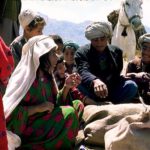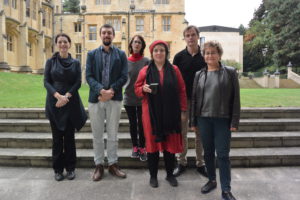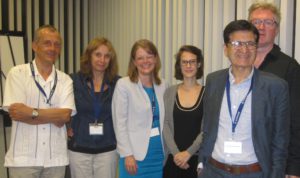
On 23 October, the Nomadic Empires project team hosted a workshop with Thomas Barfield, Professor and Chairman at the Department of Anthropology, Boston University, and President of the American Institute of Afghanistan Studies.
During the workshop, titled Pastoral production in northern Afghanistan: the case of the Central Asian Arabs, Barfield delivered a rich visual narrative of the annual migration and production cycle of that pastoral nomadic community, whom he had studied in Afghanistan during the 1970s. He explained how nomads organized and prepared for migration, what activities they carried out in different seasons and areas of habitation (food preparation, dwelling construction, textile making, animal rearing, training and trading), how their society and economy functioned while they moved on a seasonal basis, and how they were integrated within the larger regional community and economy through labor division, trade, social exchange, ecology, and religion. Special attention was paid to the material culture of the nomads in different contexts and different environments as they moved through changing landscapes and seasons and interacted with other regional groups of Afghanistan. Part of this workshop discussion also focused on nomadic and regional identities expressed through verbal and non-verbal communication patterns (such as dress, religious practices, and gendered activities). These patterns of communication and exchange were especially pronounced at such venues as regional and local market places, shrines, and during interpersonal encounters on the migration routes.

